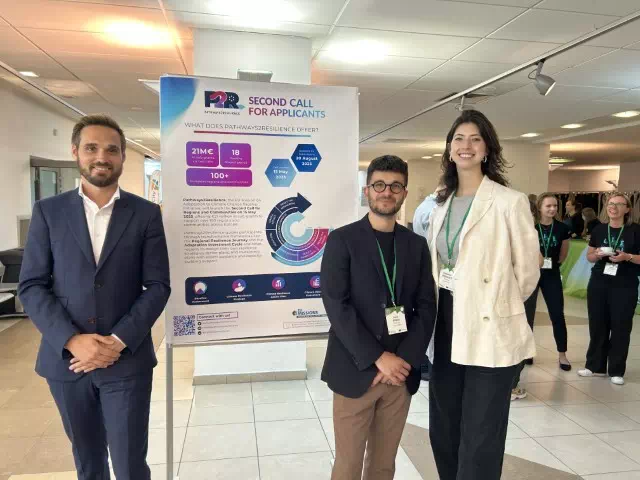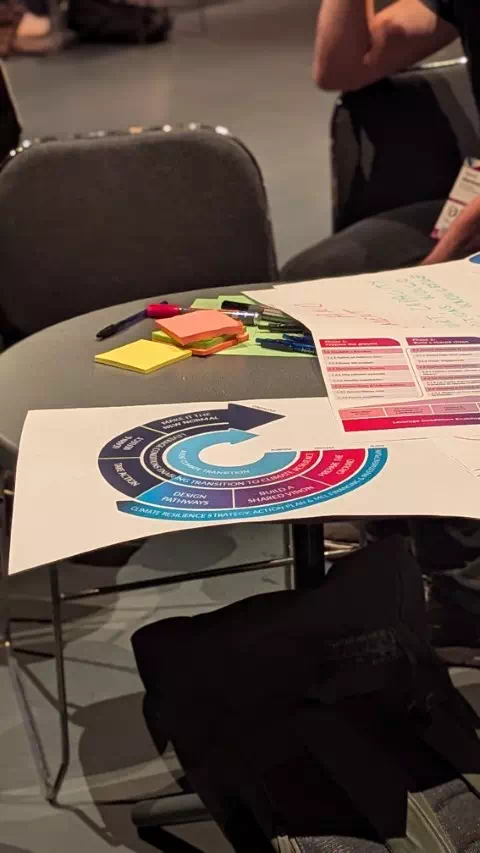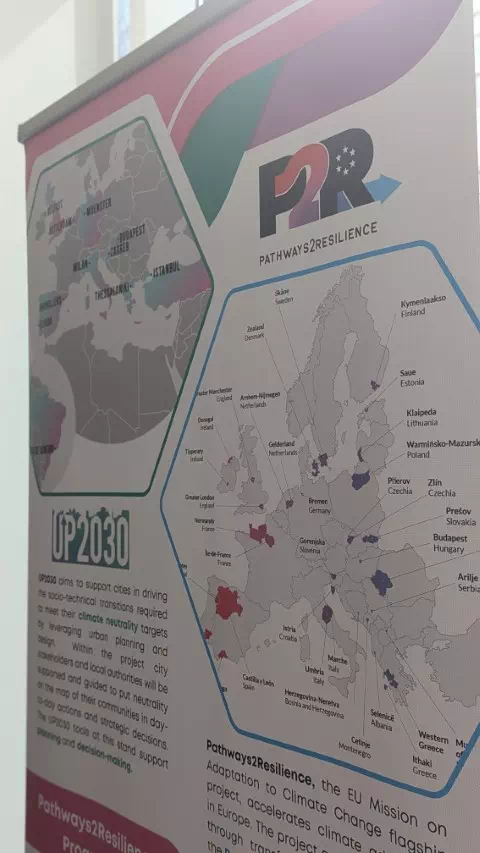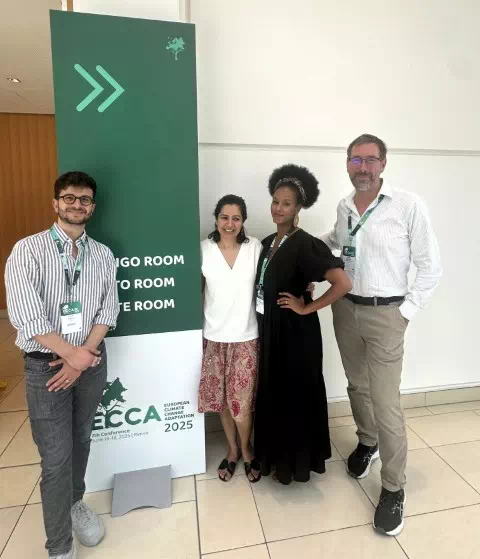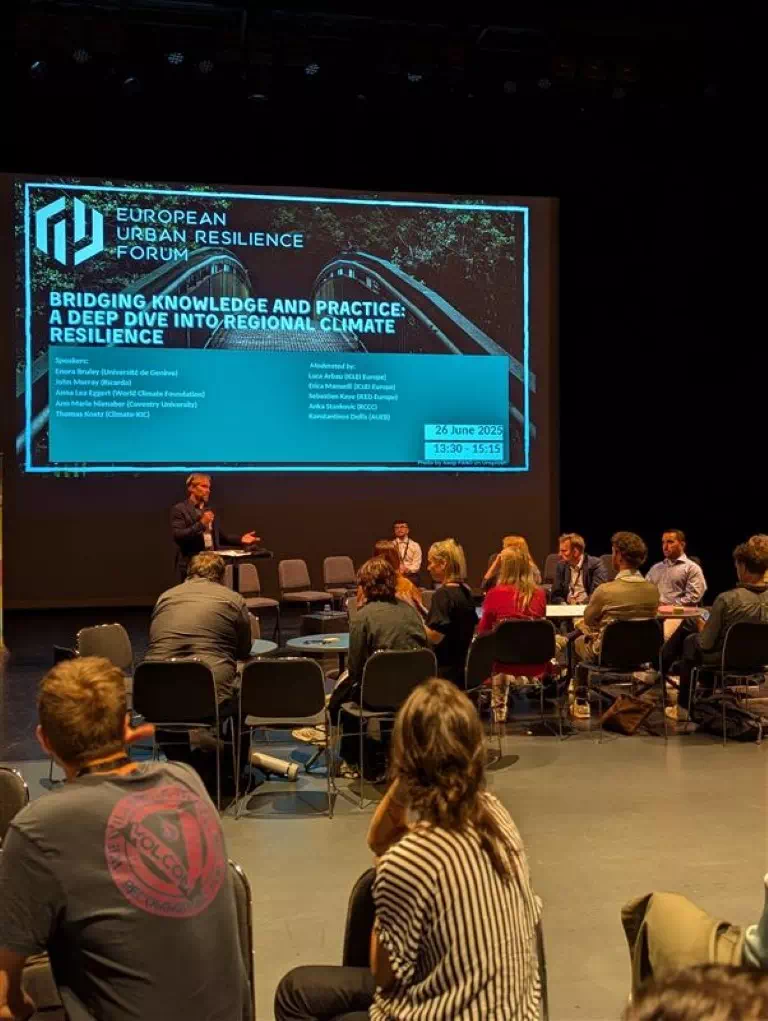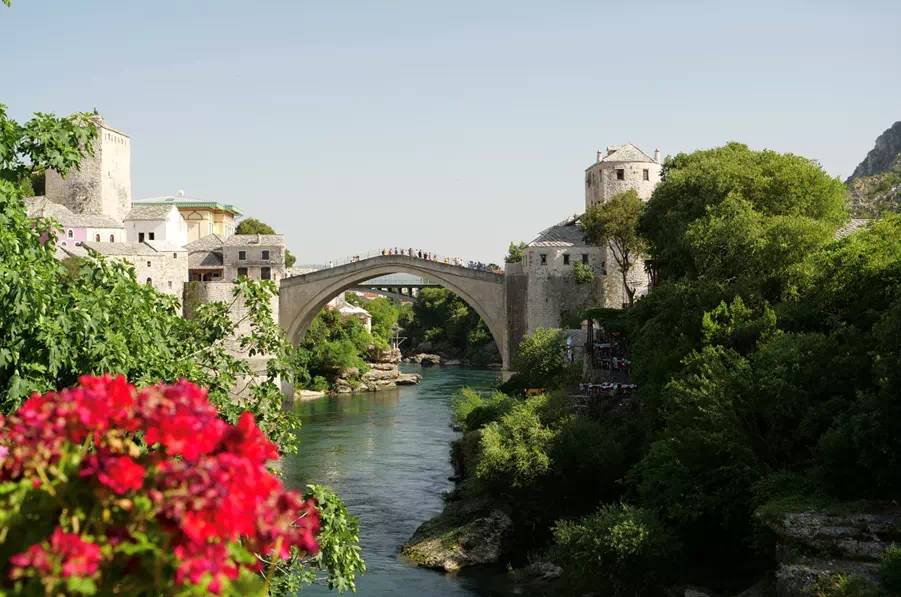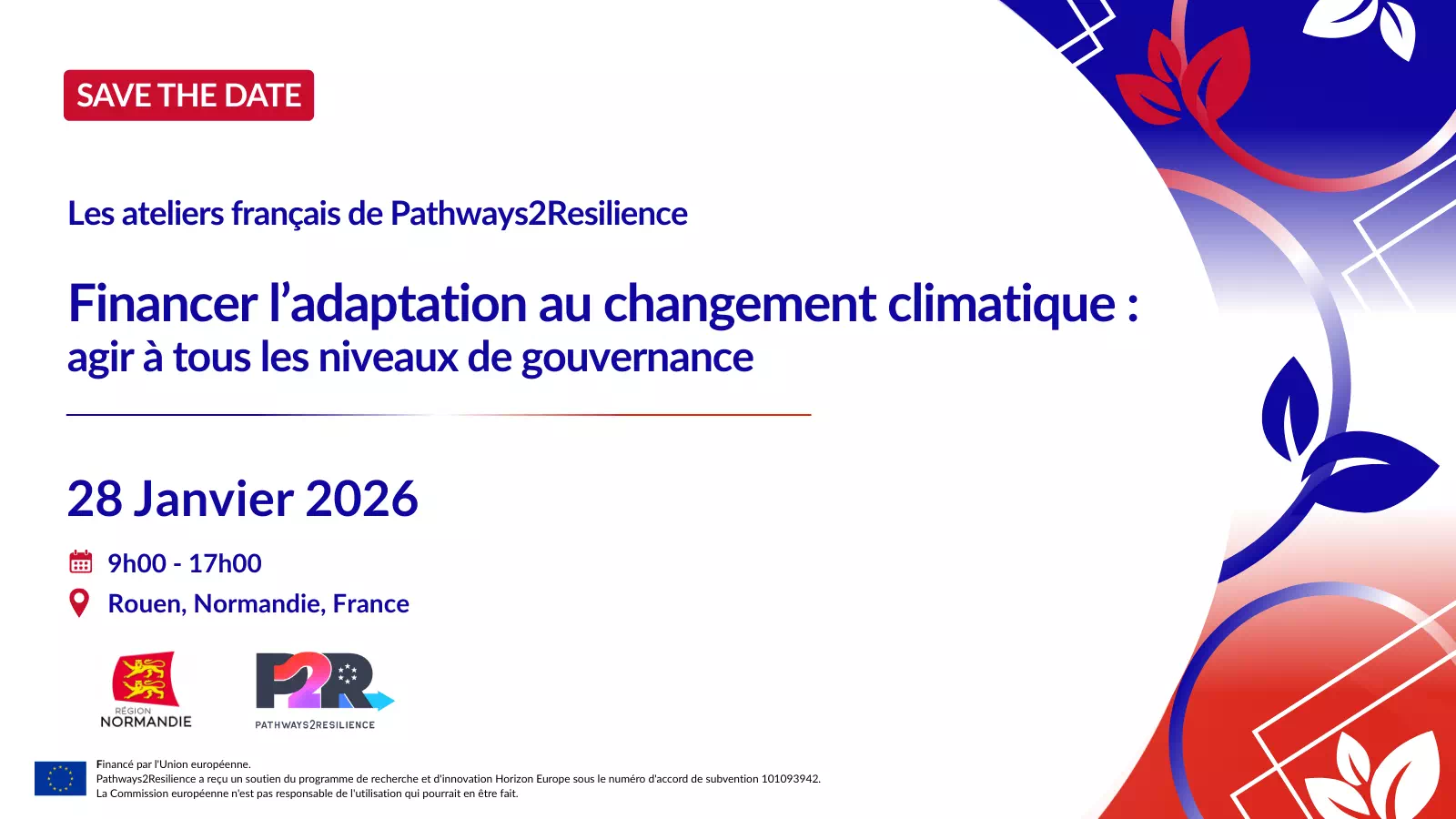Effective climate adaptation is only possible with meaningful exchange and connection. International gatherings support the types of in-depth conversations that Pathways2Resilience partners need to share approaches, discuss barriers, and work on solutions. In addition to attending the Adaptation Mission Forum in Wrocław, Poland, P2R partners have been taking part in high-level events, digging into topics like adaptation finance and the Regional Resilience Journey.
In Rimini, Italy, Pathways2Resilience took part in the ECCA (European Climate Change Adaptation Conference), providing inputs during the Policy Session “Fostering an EU Enabling Ecosystem to Close the European Adaptation Finance Gap.” P2R partners highlighted the salience of developing adaptation investment plans for regions and cities to act as the missing link between high-level adaptation strategies and bankable adaptation actions that promote resilience. P2R partners introduced the Adaptation Investment Cycle and highlighted its value as a potent framework for the delivery of credible regional adaptation investment plans. The Adaptation Investment Cycle addresses the key barriers associated with adaptation finance and is linked with the phases of the Regional Resilience Journey.
Pathways2Resilience was also present for the European Urban Resilience Forum (EURESFO) in Rotterdam, an event that convenes local and regional stakeholders working to accelerate resilience action. With 373 attendees and 171 communities represented, EURESFO brings together a diverse array of timely topics, from public health to private sector investment in climate resilience. As part of a session titled, Bridging Knowledge and Practice: A Deep Dive into Regional Climate Resilience, Pathways2Resilience partners dug into the Regional Resilience Journey and focused on four key enabling conditions: Finance & Resources; Data & Knowledge; Governance & Innovation; and Behavioural Change. Pathways2Resilience’s Deep Dives, a network of experts working together to identify and advance these key enabling conditions, were highlighted as “bridge for P2R to bring the projects embedded on the MIP4Adapt and structure and transmit the knowledge to the P2R regions and work with it,” in the words of Co-Coordinator Thomas Koetz.
In a breakout group dedicated to Finance & Resources, the main discussion topic was identifying, prioritizing and addressing the key barriers for adaptation finance. The P2R team outlined the main categories, whereby session participants underscored Financial, Economic and Political & Institutional barriers through a high-level voting system. It was quickly made clear that a material impediment for scaling adaptation finance in European regions is the lack of clear financial revenues for adaptation projects. This financial barrier is exacerbated through political and awareness limitations – and the resulting limitation of the public’s understanding of the benefits of adaptation. Furthermore, this intersection of barriers tends to deprioritize adaptation actions in regional policy strategies.
Among the potential solutions discussed were financial de-risking options to incentivize the engagement of the private sector; explicit showcasing of adaptation benefits and costs of inaction to raise awareness; and changing narratives towards integrating resilience targets in regional planning. All participants agreed that the knowledge and (financial) resources are available but the capacity to harness them is not sufficient.
These events highlighted that a powerful shift is needed in the narrative, to acknowledge the benefits and co-benefits of adaptation across sectors. This change will help regions and communities to tackle more than one barrier at once (behavioural, awareness, political) in their way toward a climate-adapted future.
Check out the photo album from our partner ICLEI Europe here

